Timeline
See how Boston University has advanced climate action efforts over the years.

See how Boston University has advanced climate action efforts over the years.


Robert A. Brown, Boston University's 10th President, announced the formation of a new group that will administer the University's sustainability program. The program is broad in scope and aims to reduce the University’s environmental footprint by effecting change on campus and integrating sustainability into existing programs in education, research, and operations.
Learn More
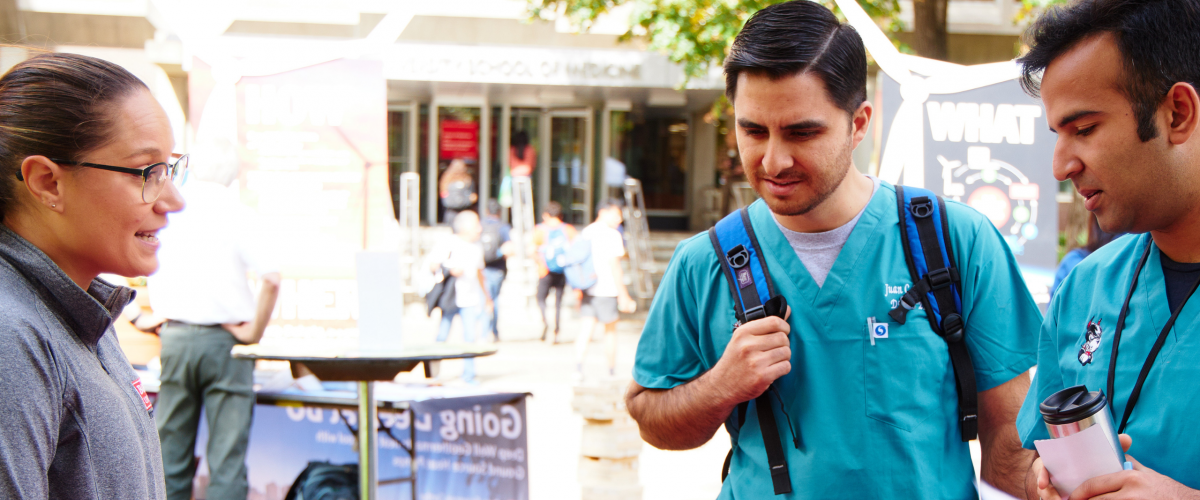
University leaders hire BU’s first director of sustainability, Dennis Carlberg, an architect and a former senior designer and project manager. Carlberg oversees the BU Sustainability Committee made up of faculty members, staff, and students. The committee works to reduce energy consumption and waste across campus by concentrating on four crucial areas: recycling and waste management; energy efficiency; sustainable building development and operations; and communications, education, and outreach.
Learn More
Located within the Sargent College building, the upgraded Makechnie Study Center features new computers and printers surrounded by glass-walled group study rooms, a conference room, and a digital editing suite, all flooded with natural light. The space became the first on the Charles River Campus to earn LEED certification for environmentally friendly building from the US Green Building Council (USGBC).
Learn More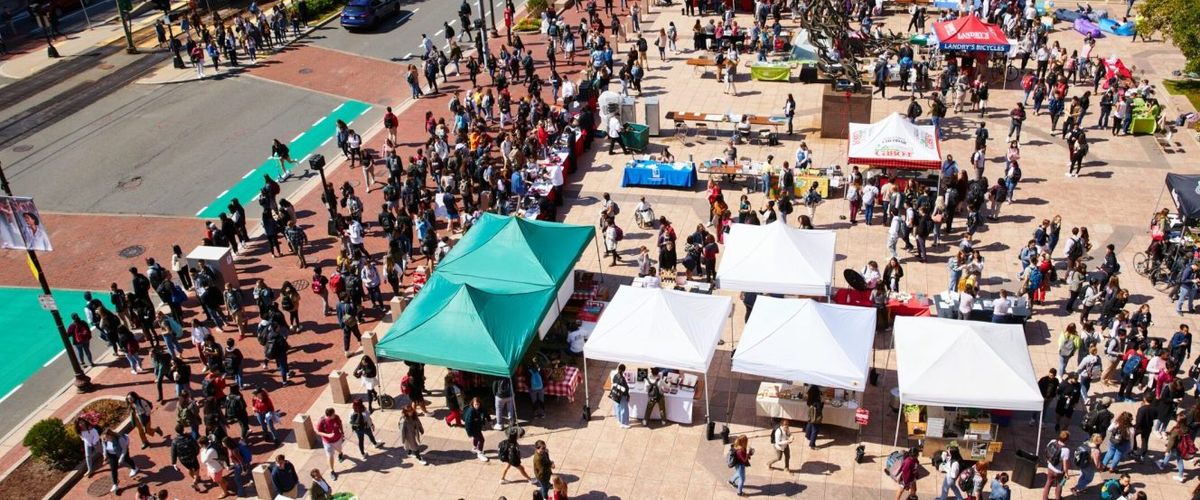
Designed to celebrate our planet and focus on how members of the BU community can have a positive impact on the environment, BU's Earth Day Festival brings together local businesses, nonprofits, various BU departments, student organizations, and more to take part in interactive and fun activities promoting sustainability.
Learn More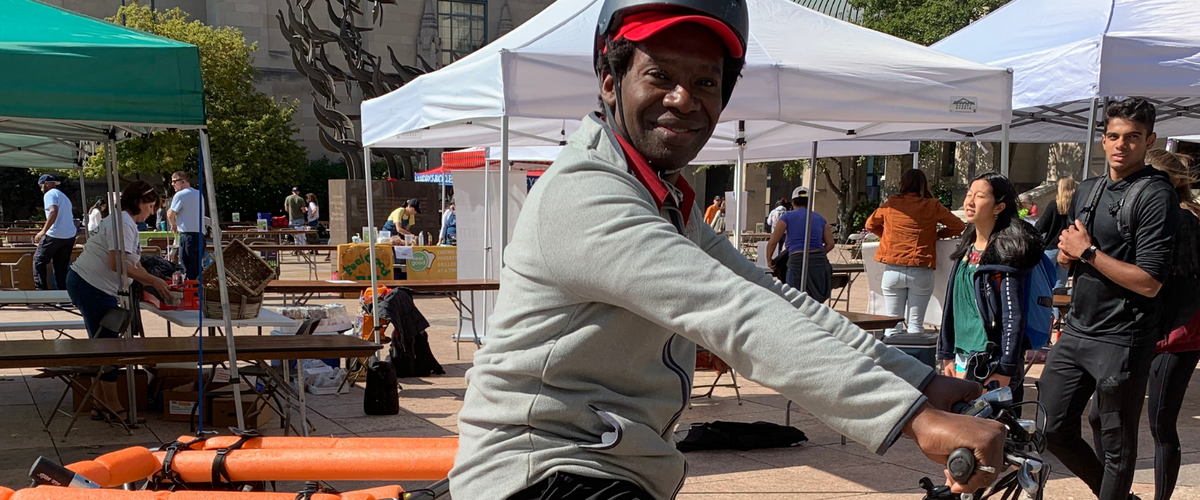
The program was created to promote campus sustainability through peer-to-peer awareness within each of the schools and colleges as well as many administrative departments on our campuses. The liaisons are comprised of faculty, staff, and graduate students.
Learn More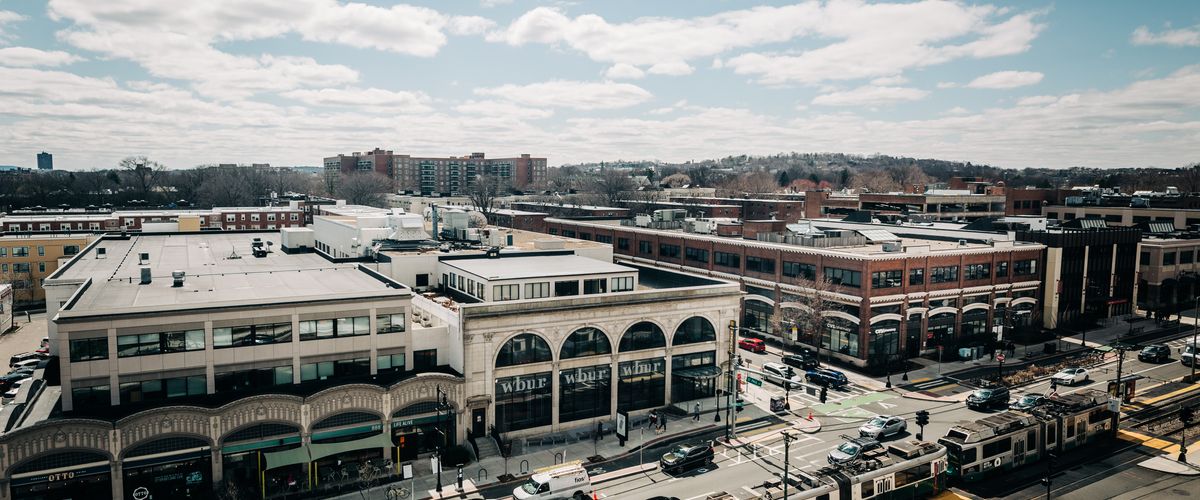
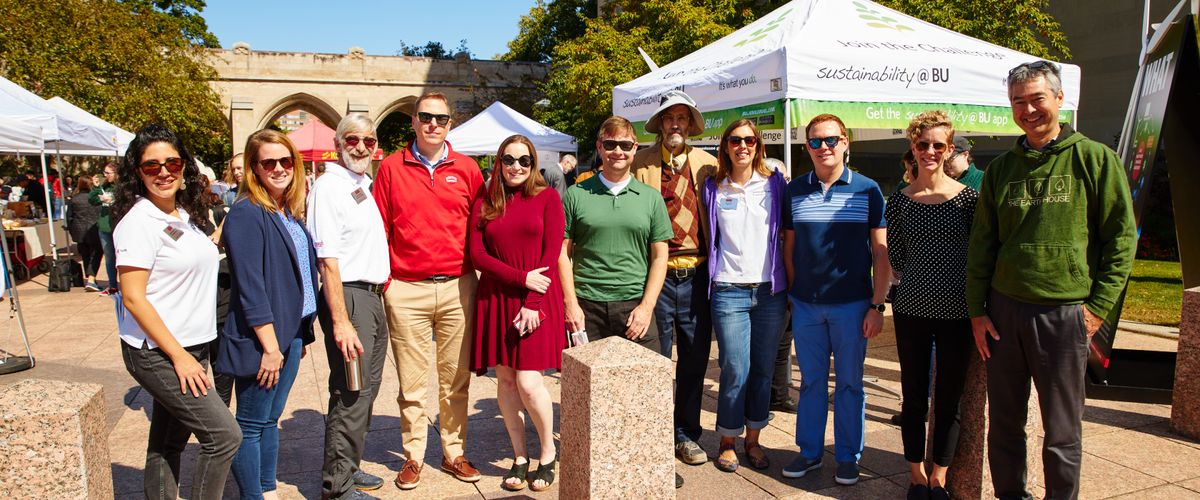
This now-annual event, hosted on both the Charles River and BU Medical Campuses, promotes eco-friendly lifestyles and environmental education, featuring vendors, student clubs, community organizations, and BU departments and offices. Hosted by BU Sustainability, the festival includes educational games, sustainability swag, information booths, and, of course, plenty of free food.
Learn More

The apartment complex at 85–87 St. Mary’s St. is the first BU residence to achieve Leadership in Energy and Environmental Design (LEED) certification, a program created and administered by the U.S. Green Building Council. The residential complex—a mix of one-, two-, and three-bedroom apartments comprising nine units total—was stripped to the rafters, studs, and floorboards, and methodically rebuilt.
Learn More
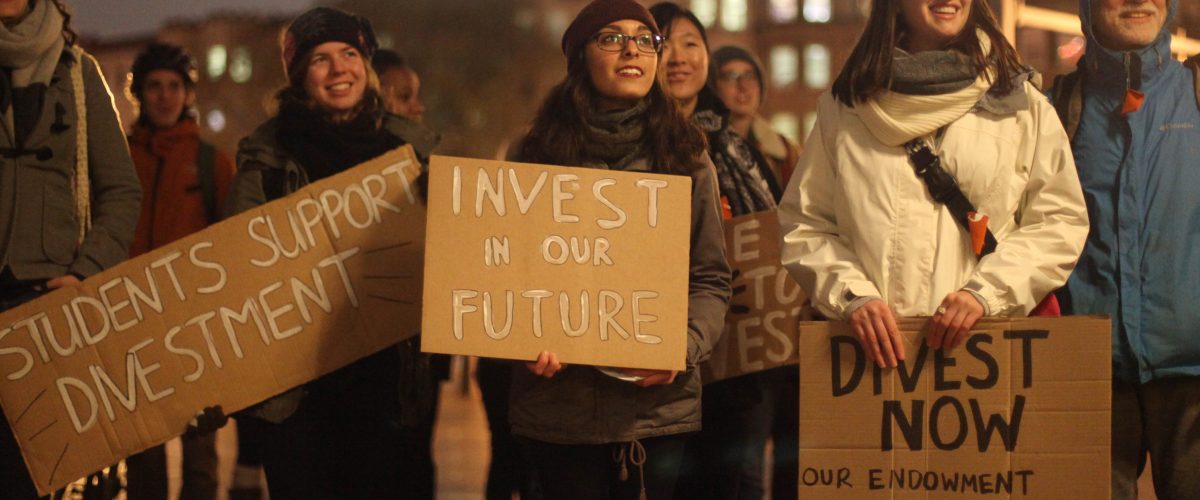
Students organize to encourage the University to divest from fossil fuel interests. DivestBU goes on to engage students in petitions, rallies, and formal proposals to the administration.
Learn More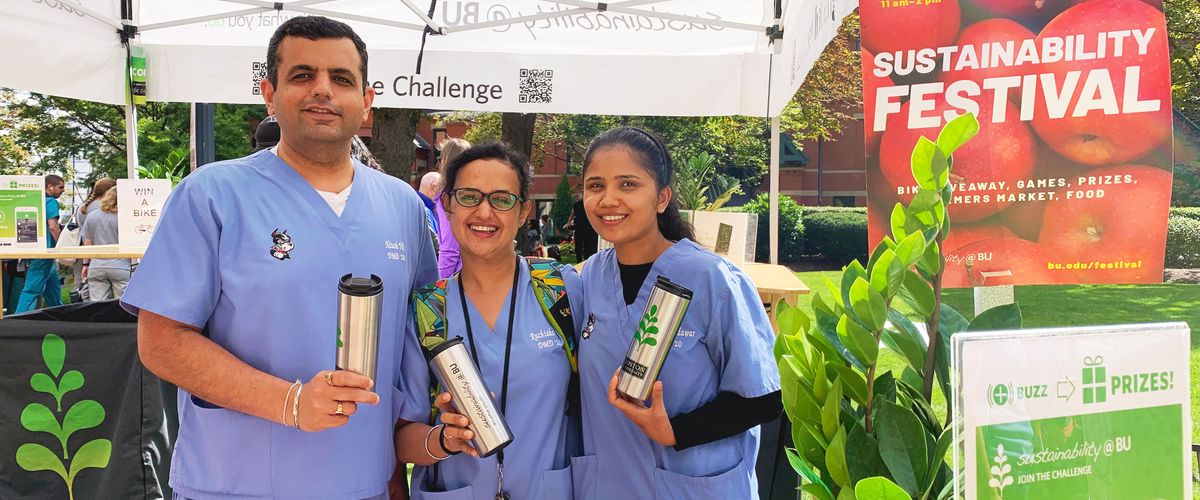
The committee's mandate is to represent all of the BU community (trustees, faculty, and students); offer expertise in socially responsible investing issues in order to be able to engage in informed, thoughtful, and collegial consideration and discussion; and maintain continuity and institutional memory on relevant policy issues. As such, they will advise the Board of Trustees on socially responsible investing and coordinate and facilitate communication related to policy issues.
Learn More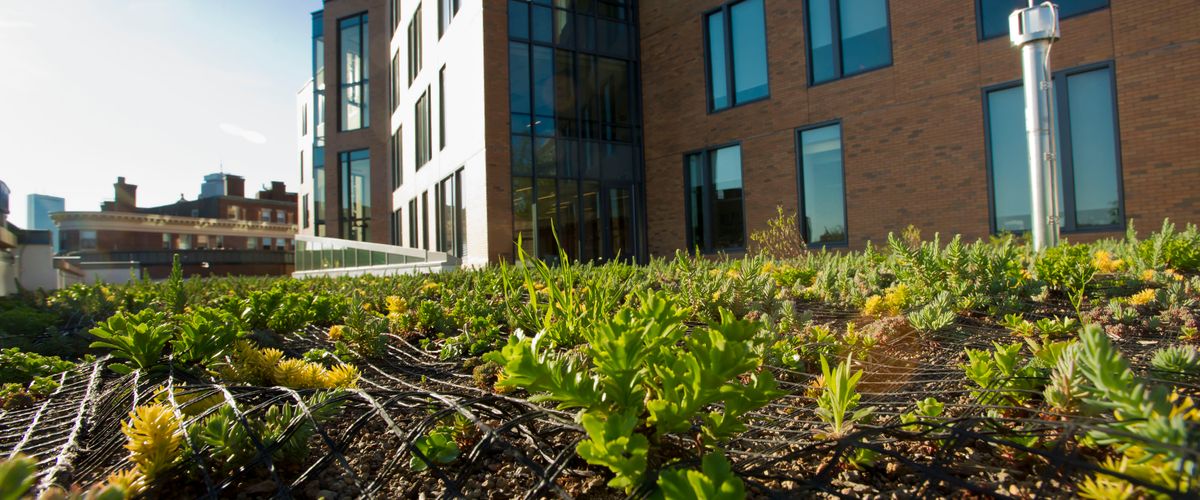
Spanning nearly 6,000 square feet, the roof at the Yawkey Center for Student Services is designed to become a lush bed of vegetation, helping to decrease the building’s carbon footprint. Green roofs reduce the heat island effect created by black roofs, improve insulation—lowering heating and cooling bills—and increase rainwater retention, which captures runoff that can overwhelm sewer systems.
Learn More
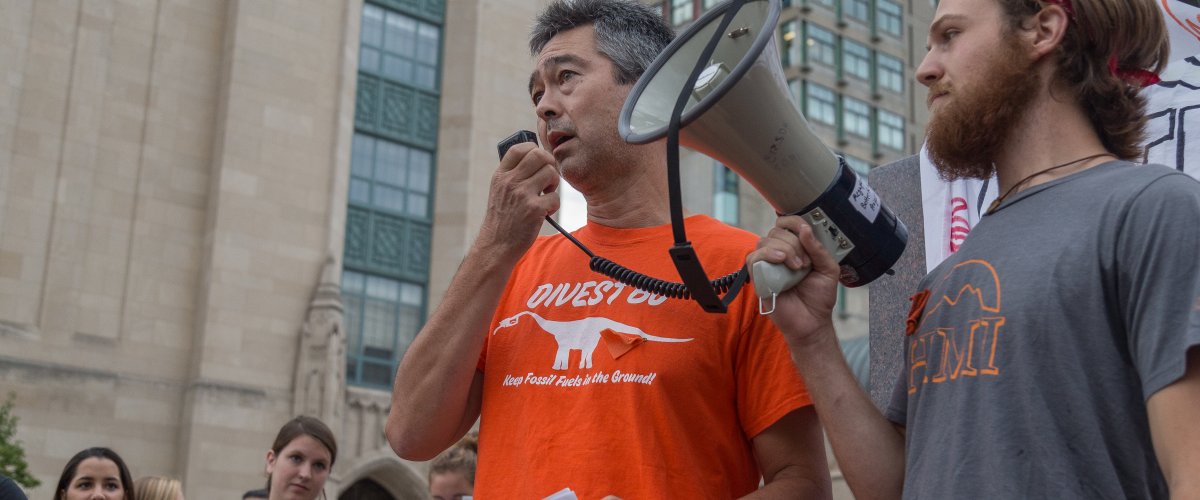
Together with the DivestBU student movement, 245 faculty members sign a petition urging the University’s trustees and the Advisory Committee on Socially Responsible Investing (ACSRI) to divest fossil fuel interests from its endowment.
Learn More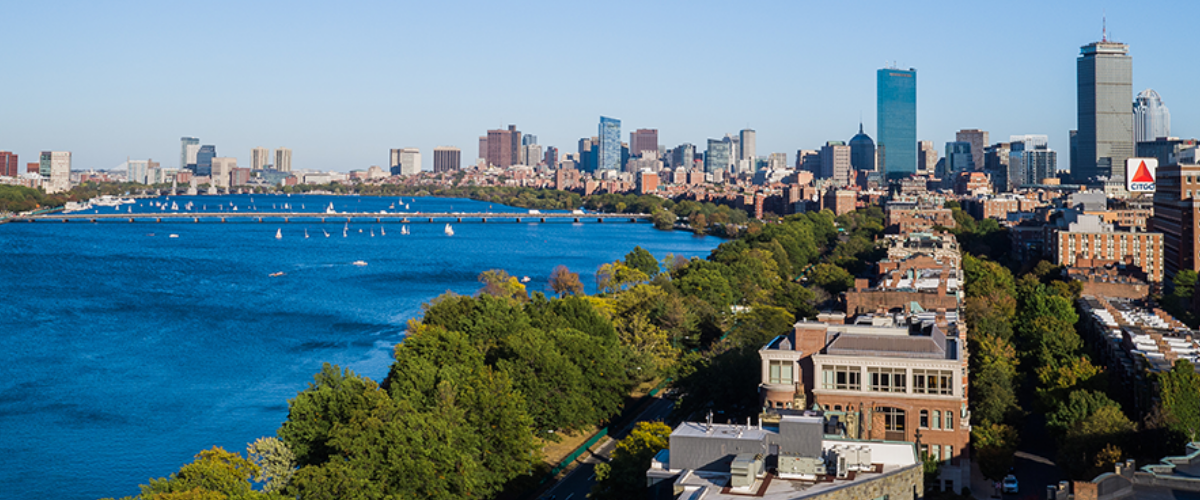

The Earth House, a specialty community at BU for decades, in 2016 became a first-of-its-kind experiential Living-Learning Community, integrating credit-based coursework with residential living.
Learn More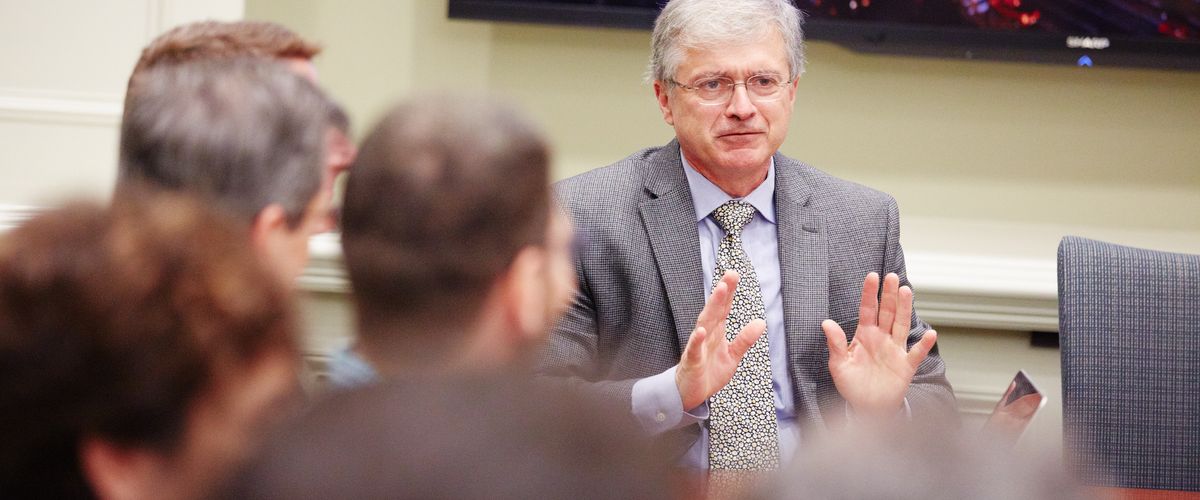
The Advisory Committee on Socially Responsible Investing (ACSRI) presented recommendations to enhance the University's sustainability initiatives, including developing a Climate Action Plan and divesting from companies that continue to explore new fossil fuel reserves or that extract coal and tar sands. Formed was the Climate Action Plan Task Force, which held its first meeting and began the challenging work of developing a plan to mitigate the effect of climate change on BU's campuses as well as the impact of University operations on the environment at large.
Learn More

The Boston University Board of Trustees approve a Climate Action Plan that will dramatically cut greenhouse gas emissions across BU's campuses and fund broad infrastructure improvements in preparation for flooding or heat surges in the coming decades. The plan’s centerpiece is the reduction of carbon emissions on the campuses to zero by 2040, a decade ahead of a similar effort by the city of Boston.
Learn More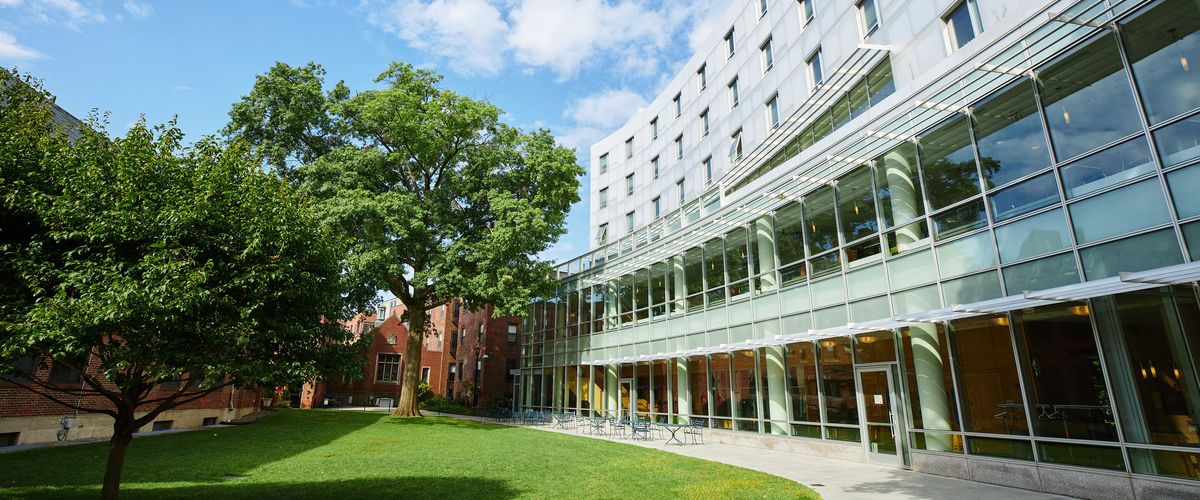

A collaboration between Sustainability and Innovate@BU, the Sustainability Innovation Seed Grant program provides students with the funds they need to turn their sustainability project ideas into reality.
Learn More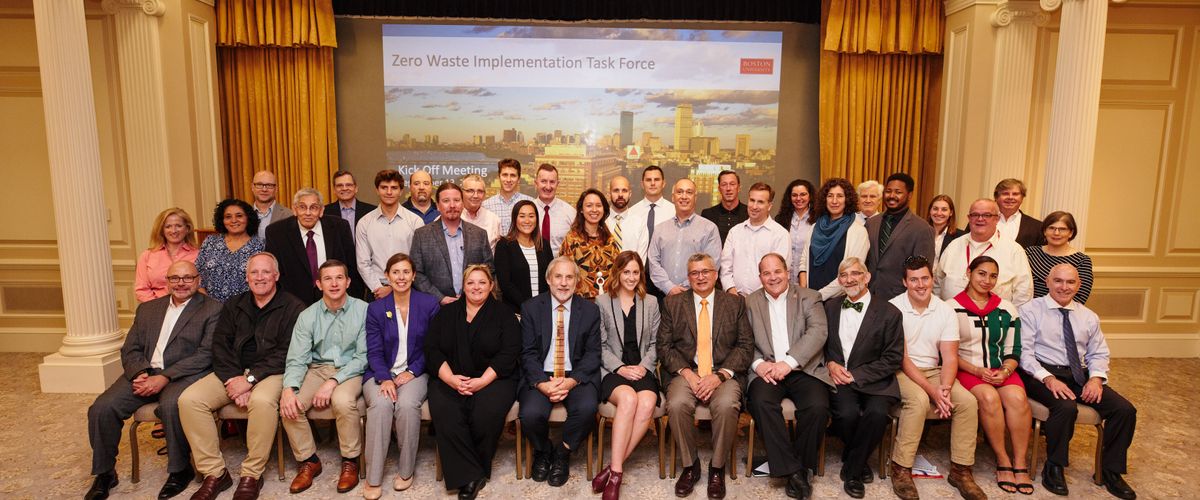
The Climate Action Plan recommends that the University establish a Zero Waste goal (90% of our waste would be diverted away from landfills and incineration, including 90% of construction waste). To determine how best to achieve this goal, BU formed the Zero Waste Implementation Task Force and engaged with the campus community, including more than 400 online survey respondents and over 100 campus forum participants.
Learn More
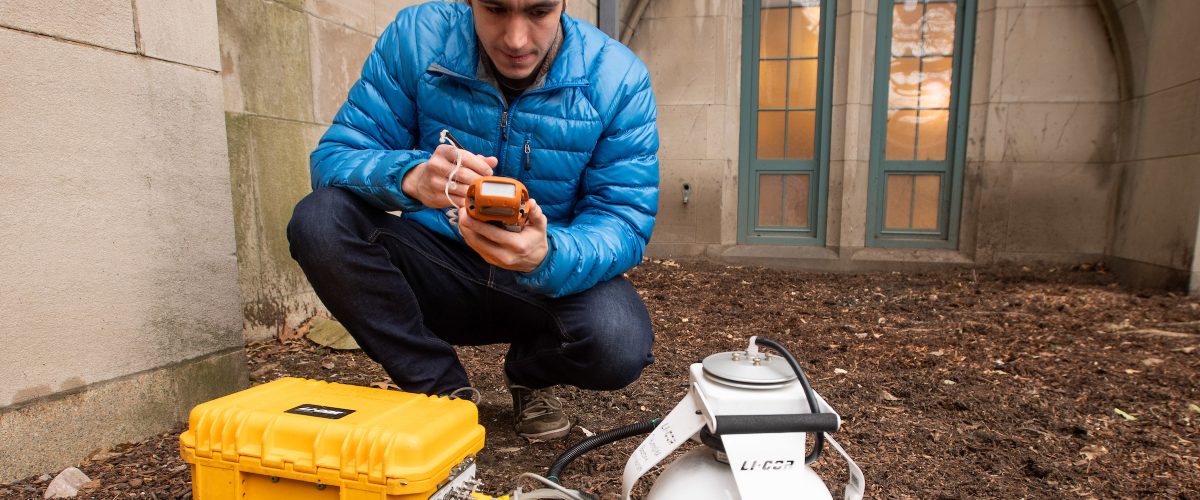
The Campus Climate Lab enables researchers to use BU's campuses as a living laboratory to advance sustainability practices, by funding student research projects and facilitating interdisciplinary collaboration among students, staff, and faculty.
Learn More
Named in honor of the late Professor Tony Janetos, director of the Frederick S. Pardee Center for the Study of the Longer-Range Future, the prize is awarded each spring to the Campus Climate Lab student or team whose project most substantially advances Climate Action Plan goals and helps shift the University toward more sustainable operations.
Learn More
Resident Sustainability Leaders make a year-long commitment to promote sustainability in student housing and provide support to residents on sustainability subjects ranging from recycling to energy, water, waste, and more. Principally part of the BU Sustainability team, Resident Sustainability Leaders are also part of the Residence Life and promote a positive and healthy environment where students can live, learn, and thrive.
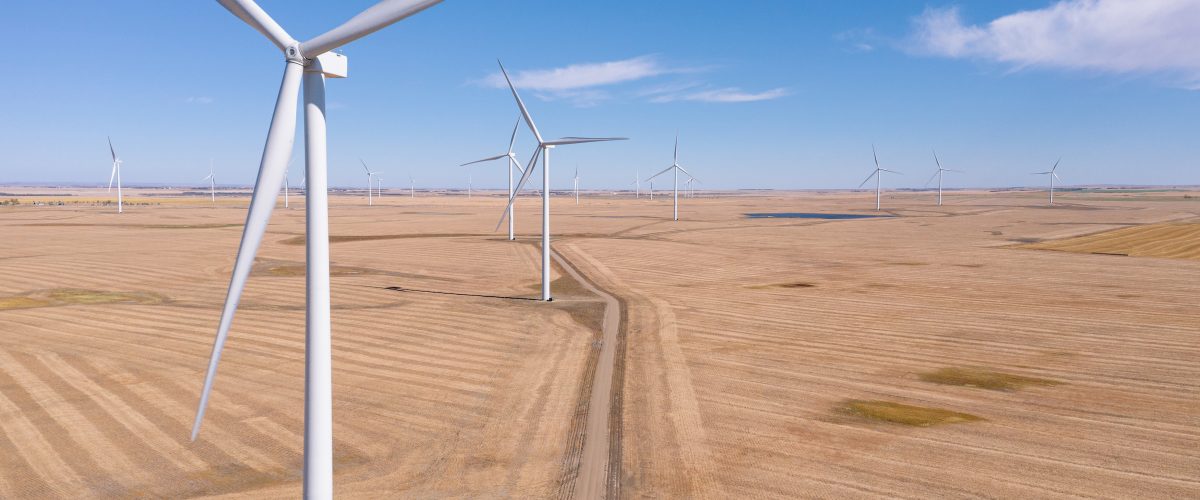
Boston University begins 20-year Power Purchase Agreement which involves buying 205,000 megawatt hours of electricity annually from wind farm developer, builder, and operator ENGIE North America. BU Wind is a clean energy project in South Dakota that the University enabled, fulfilling a key goal of the University’s Climate Action Plan (CAP).
Learn More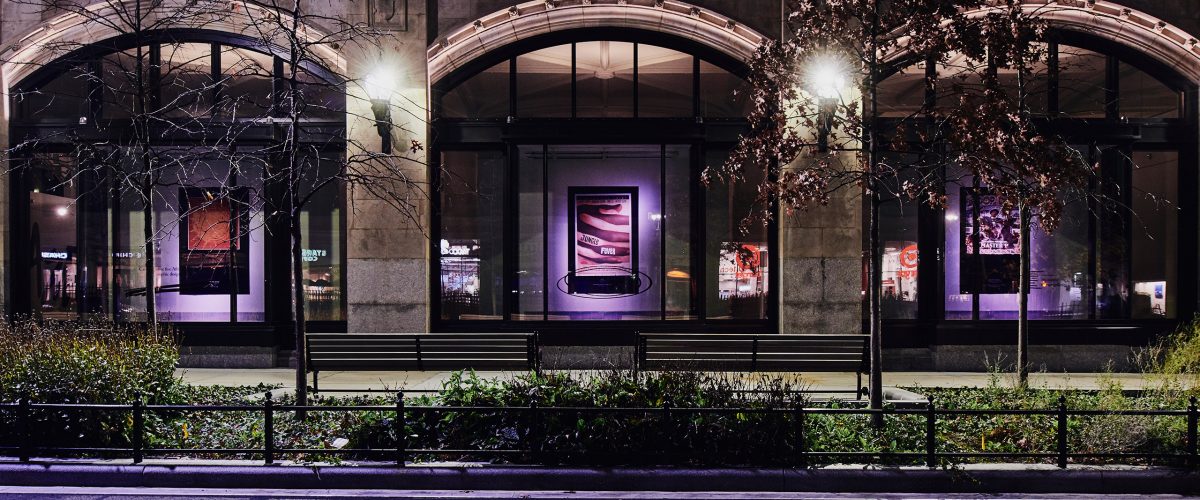
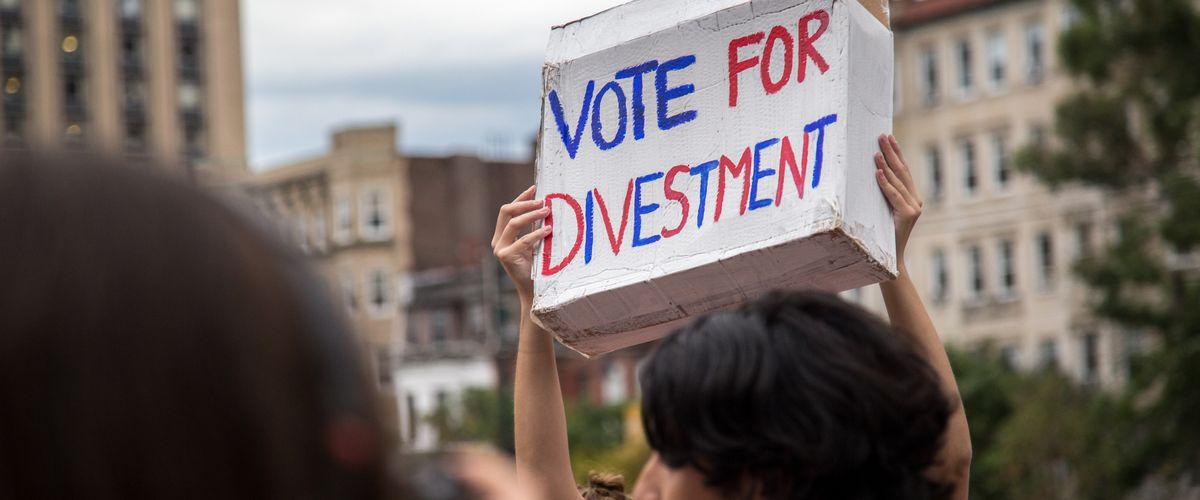
Due to rapid acceleration of anthropogenic climate change, as well as continued pressure from DivestBU, the Advisory Committee on Socially Responsible Investing (ACSRI) recommends completely phasing out investments in companies that extract oil and natural gas. The Board of Trustees votes in favor of adopting a plan to divest its endowment from remaining fossil fuel interests.
Learn More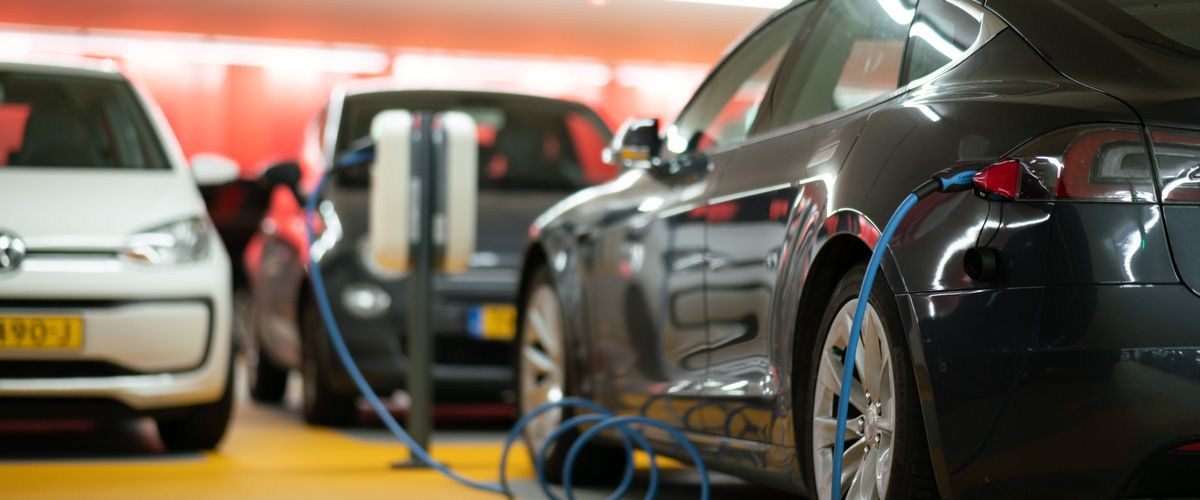
As part of the University’s commitment to sustainability, departments are transitioning to electric vehicles. As departments request replacement or new vehicles, electric models are given priority. Additionally, there are numerous dedicated charging stations for the growing EV fleet and in various garages on campus.
Learn More

Boston University’s Institute for Sustainable Energy was relaunched as the Institute for Global Sustainability (IGS). With this renaming, the scope of IGS expands from focusing on renewable energy to advancing a sustainable and equitable future for all, with a focus on planetary and environmental health, climate governance, and energy grounded in equity and justice, robust data analysis, and real-world impact.
Learn More

After a decade of planning, design, and construction, the Boston University community is welcomed to the Duan Family Center for Computing & Data Sciences for the first day of classes in January 2023. It is the largest fossil fuel-free, carbon-neutral building in Boston and Boston University's first LEED Platinum certified building.
Learn More
Boston University dining launches Choose to Reuse, a nationally leading program for reducing single-use food container waste. Community members are able to order food on reusables via Grubhub, the University’s contracted point-of-sale vendor. The program aligns with BU’s Zero Waste Plan, which aims to divert 90 percent of BU’s waste from incineration or landfills by 2030.
Learn More
Boston University installed solar arrays on four sites, the Track and Tennis Center, Booth Theater, administrative offices at 25 Buick Street, and Kilachand Hall, which were identified through a solar feasibility study. The University will continue to utilize this study, which covers over 80 buildings across the three campuses, to identify potential new projects for solar power generation. This first installation generates 1.1 million kWh of renewable energy for the University.
Learn More
In 2023, BU earned its first STARS Gold rating from the Association for the Advancement of Sustainability in Higher Education (AASHE) in recognition of its sustainability achievements. With more than 1,200 participants in 52 countries, AASHE’s STARS program is the most widely recognized framework for publicly reporting comprehensive information related to a college or university’s sustainability performance.
Learn More

As part of the next phase of its Climate Action Plan, Boston University established a team of sustainability, operations, and finance professionals, along with faculty and students, to develop recommendations to reduce emissions from heating and cooling buildings on campus.
Learn More
Boston University's largest residence hall, Warren Towers, is being transformed from one of the University's largest emitters to a non-emitter. Once the three-year renovation is complete in 2027, it will become the next net-zero and fossil fuel-free building at Boston University.
Learn More